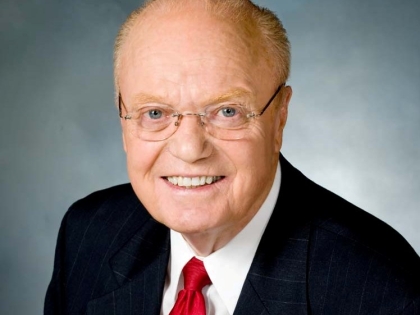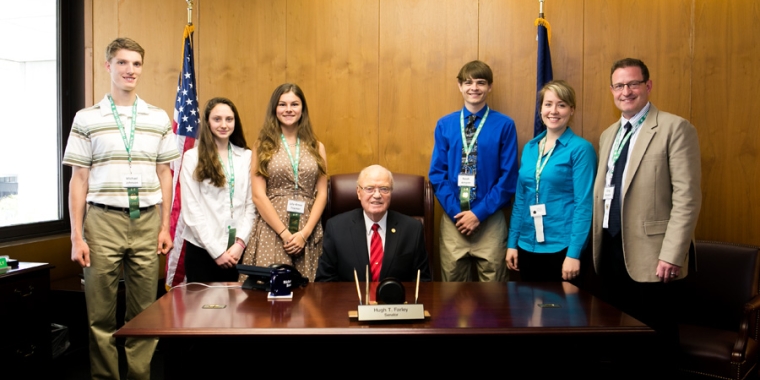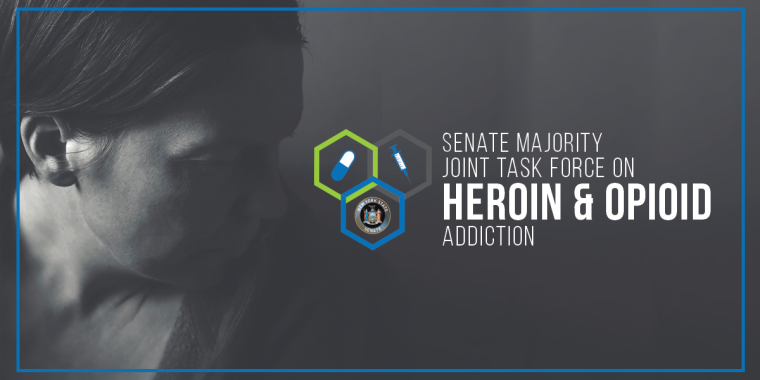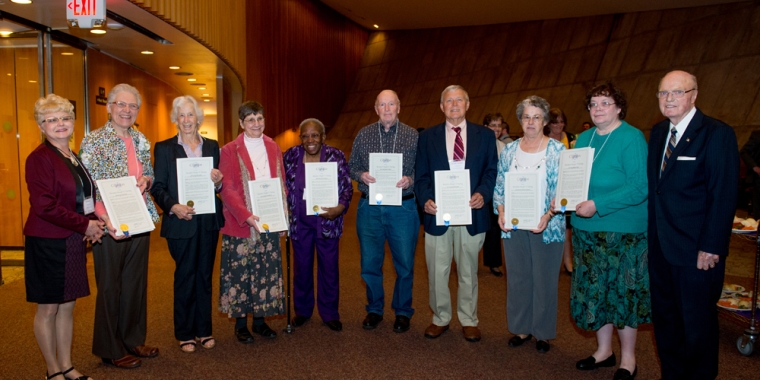
Senate Passes Academic Research Information Access Act
Hugh T. Farley
May 19, 2011
-
ISSUE:
- Education
State Senator Hugh T. Farley (R, C, I - Schenectady) announced that he and his colleagues in the New York State Senate passed legislation May 17th that would enable public and private academic and research libraries in New York State to create an information infrastructure unequaled in the world.
Known as ARIA, the Academic Research Information Access Act (S.3736-A), leverages the state’s public and private higher education sector – arguably the largest and most diverse in the nation – to facilitate collaboration and efficiencies by providing for the voluntary pooling of assets in order to obtain access to high-end electronic, peer-reviewed, information resources such as journals, serials, and databases.
Supported by CICU and endorsed by the New York State Commission on Higher Education, it is expected that ARIA will save SUNY between $7-9 million annually, CUNY between $2-3 million annually, and New York State’s independent colleges and universities between $5-15 million annually. Electronic information resources account for 30 percent of the budgets at state academic and research libraries, amounting to nearly $160 million in recent years – nearly $500 million for all of New York’s academic and research libraries. Over a four-year period, these resources have grown 42 percent; the prices of some journals have risen as much as 50 percent over the past five years, at a time when most campuses are undergoing budget cuts.
Due to the anticipated savings to colleges and universities – a preliminary survey of academic and research libraries demonstrates the average participant will enjoy a seven percent reduction in cost, and a ten percent increase in collection size – ARIA has garnered much support in higher education and business fields:
ARIA provides that the state pursue electronic research collections under the guidance of a volunteer advisory board representative of the academic and research library community. This board will manage dealings with the publishers. Upon agreement, the state will act as an aggregator of library funds – voluntarily offered – and serve as the single contract holder. The participating institutions will gain needed budget relief through the collective buying power of all participating partners. In turn, the state will stipulate that contracts for the information resources provide access to qualified emerging technology companies, thus lowering their cost of doing business.
The beneficiaries of these information resources will operate primarily in the fields of science, technology, engineering and mathematics. Access to ARIA resources will be available to all participating researchers, scholars, faculty and students at member and associated institutions of the New York State Higher Education Initiative, as well as other participating institutions registered by the State Education Department Office of College and University Evaluation (OCUE). Access to ARIA resources will also be available to researchers, entrepreneurs, other innovators existing in business incubators aligned with the State Higher Education Initiative member and associated institutions, as well as available to recipients of grants through the State Department of Economic Development and the Empire State Development Corporation. Other beneficiaries include businesses with fifty or fewer employees, which otherwise meet the definition of a qualified merging technology company, as defined by paragraph (c) of subdivision one of section thirty-one hundred two-e of the public authorities law.
ARIA was among the recommendations of the Governor’s Commission on Higher Education in its 2008 Final Report. The direction and focus of ARIA is reflected in the final reports of the Governor’ 2009 Task Force on Diversifying the New York State Economy, the 2009 report, " New York City’s Innovation Economy" by the Center for an Urban Future, the 2007 A.T. Kearney report commissioned by Empire State Development, and the 2007 " in Innovation" report by the National Governor’s Association and the Pew Foundation Center on the States, among others.
Share this Article or Press Release
Newsroom
Go to Newsroom
Senator Farley Discusses 4-H With Local Youth
May 17, 2016


Senator Farley Salutes Seniors
May 17, 2016
